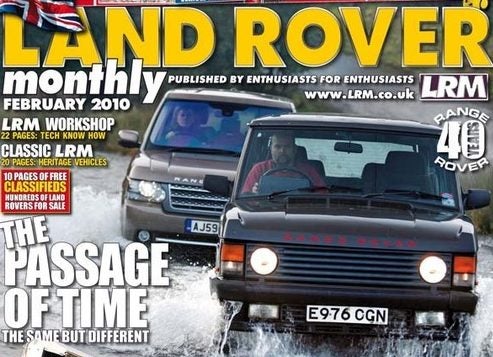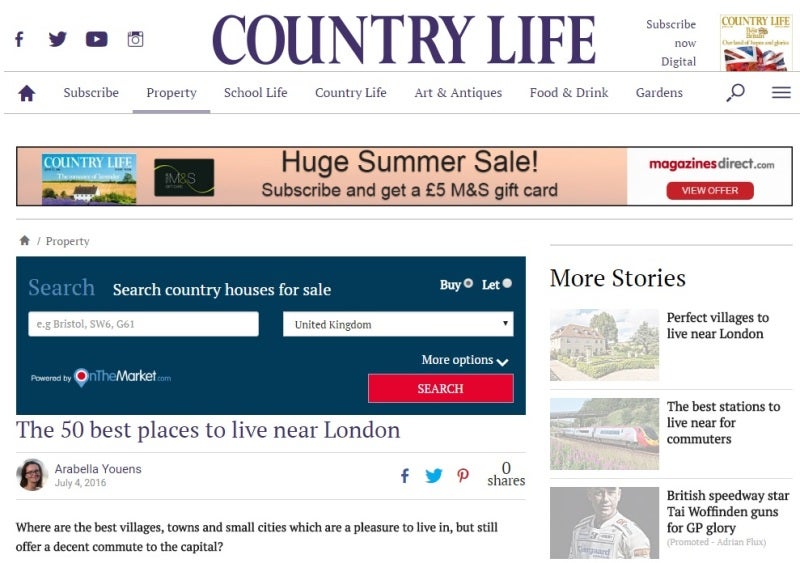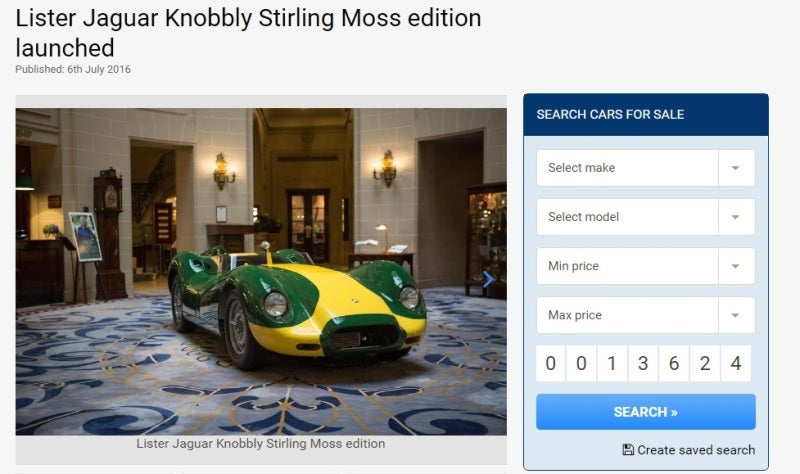
In the ongoing struggle to effectively monetise digital content, some magazine publishers have turned to online marketplaces as a source of new, higher-margin revenue.
Among them, Dennis Publishing and Time have established marketplaces – literally buying and selling websites like Amazon – for their niche motoring and property portfolios respectively.
The move has seen them merge editorial content with a searchable online database of products for sale in one website. The result is editorial that is guided by what is selling well on the site.
Geoff Love, publishing director of Dennis Motoring, tells Press Gazette: “It is a more focused approach on the website… We are driven by the amount of traffic looking for certain cars and the amount of cars we have for sale on the site.
“If there’s quite a few being sold we want to be in a position to help an advertiser find an audience for those cars.”
Similarly at Time’s Country Life publication, readers and visitors are able to search for country houses for sale alongside content such as: “The 50 best places to live near London”.
Love says: “Ultimately a lot of what we’re doing is about bringing people who are looking to buy cars together with people looking to sell cars.
“So along that supply chain, if we can get closer to that end goal then we’re adding additional value beyond just creating value.
“The start point is obviously about creating great content but then it’s about how can we further help our readers and the audiences that we develop to buy, in this instance, the car that they’re looking to purchase.”

An article on the “50 best places to live near London” below a house search tool on the Country Life website
For Dennis, which launched the Classic and Performance Car website in 2014 and later Land Rover Monthly all with the help of marketplace solution provider Fiare, online marketplaces make up less than five per cent of its advertising revenues on both titles.
Print advertising is still the publisher’s main earner, particularly through its mass-market titles such as Evo and Octane, but Love says the creation of an online marketplace is as much about pre-empting change as provoking it.
“It’s a long-term view,” he says. “It’s very rare to see a classified section in any magazine anymore, but the classic car market still has that big dealer gallery in all the magazines.
“For us it’s about positioning ourselves at the point where we believe that money is likely to go online and therefore we have a good proposition and a good home for the continued success of our portfolio.”

An article on the Classic and Performance Car website sits next to a car search tool
It’s not the first time publishers have tried to capitalise on the internet shopping phenomenon, but few if any have made a success of it so far.
The BBC ventured into e-commerce with the launch of online shopping portal beeb.com at the turn of the century, only to see it fail.
But with digital editions failing to recapture revenue lost to property, jobs and shopping portals, and the beginning of a decline in digital display advertising, already under threat from ad-blocking technology, publishers seem to be giving e-commerce a second look.
According to Kirsi Johansson, director at Fiare, the key to success is having a niche market.
“It could work for the national newspapers,” she says. “But they need to find a specific angle for it. I would be very hard for them to fight against the very big players like Amazon or the likes.
“So for nationals, they do have the audience and they publish some terrific content but I still feel it needs to be focused or themed.”
Luckily for specialist magazines such as those produced by Dennis and Time, a niche market is exactly what they have. But more than that, they have a reputation and authority gained through editorial content.
Says Love: “The editorial is absolutely fundamental to building the credibility on Google and therefore building the credibility with the dealers as well.
“If a dealer had one Jaguar E-Type for sale, he would struggle to find himself on page one of Google unless he paid a lot of money to do that.
“We can offer an environment where people who are looking to buy those types of cars can come, look at all the content and then go on to find cars for sale that they’re interested in.”
Johansson adds that aligning an audience with a marketplace can be lucrative for publishers.
“If you get the mix right, there is a very good margin in marketplaces,” she says. “Some of the industry reports show that the margins in the marketplaces are within 40 to 50 per cent in general.”
She adds: “I know that there’s a lot of discussion around marketplaces [in the industry]. I still think it works best is when you find your own specialist or niche area.
“Another sector which I think is unexploited is the B2B market where there’s an opportunity to share economies and business assets and business skills. I think this will be an area where we will see development.”
Email pged@pressgazette.co.uk to point out mistakes, provide story tips or send in a letter for publication on our "Letters Page" blog
